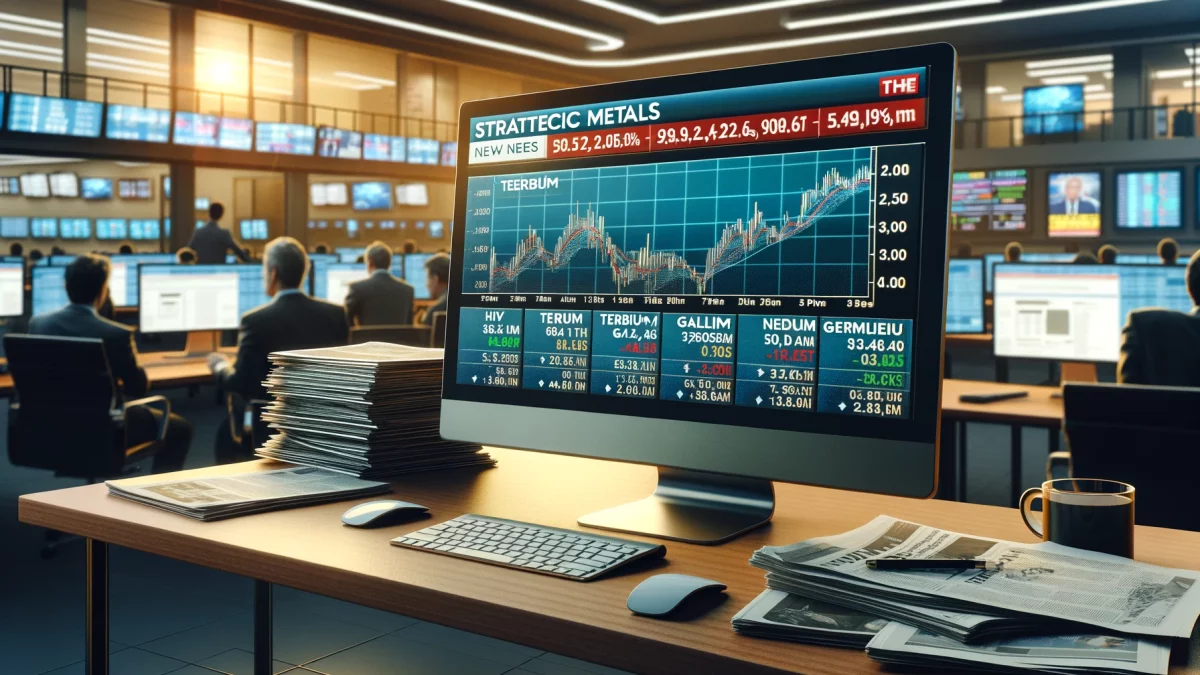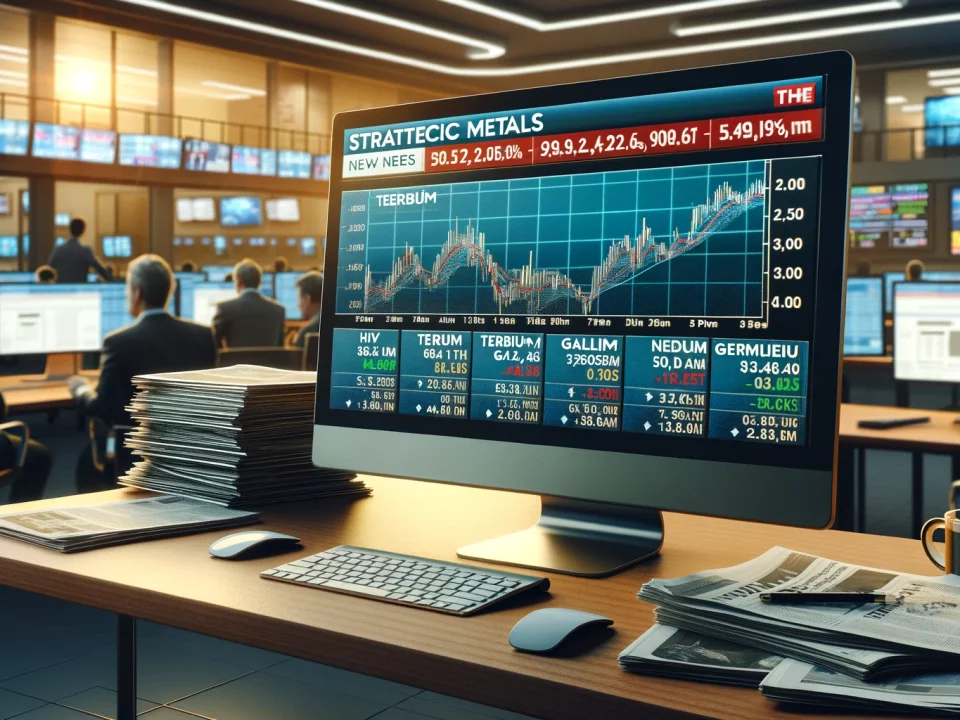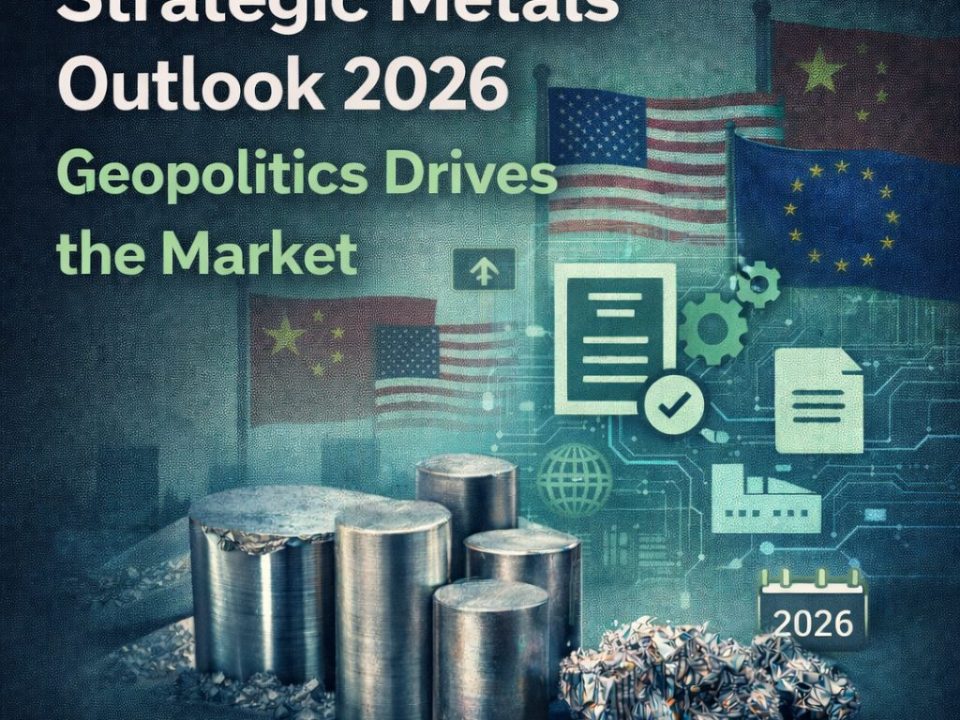
Weekly News Review March 17 – 23 2025
March 23, 2025
Weekly News Review March 31 – April 6 2025
April 6, 2025Raw material supply security again took center stage globally this week, with the EU unveiling an initial list of strategic projects and South Korea pushing for increased recycling. Meanwhile, industry leader China published the second batch of export data. All of this and more and in our weekly round-up.
UNITED STATES: WYOMING RARE EARTH PROJECT RECEIVED FUNDING –
Rare Element Resources has received a non-binding letter of interest from the Export-Import Bank of the United States (EXIM) for potential debt financing of $553 million for the Bear Lodge rare earth project in Wyoming. The funding will help advance the project through the permitting, engineering, and construction phases if finalized.
Beyond mining, Rare Element Resources is also engaged in midstream operations. Last September, the company received approval from the Department of Energy to commence operations at its rare earth processing and separation demonstration plant in Upton, also in Wyoming (we reported).
In addition to Rare Element Resources, EXIM has backed several other projects in the sector, including another rare earth project in Wyoming, the Halleck Creek Project, developed by American Rare Earths.
EXIM’s latest funding aligns with President Donald Trump’s recent initiative to strengthen domestic critical mineral production. A week ago, Trump signed an executive order to accelerate the sector’s growth by streamlining permitting processes and reducing bureaucratic hurdles to secure funding. The underlying goal is to reduce the dependency on China as an industry leader. However, mining raw materials is just the first step in a convoluted value chain to the finished product.
CHINA: GERMANIUM EXPORTS DECLINING –
China’s customs authority has released export data for gallium and germanium covering the year’s first two months. The figures highlight divergent trends in the shipment of these critical technology metals from the world’s leading producer following the introduction of export controls in the summer of 2023.
While China nearly tripled its gallium exports compared to the same period last year, germanium exports dropped by over 27%. Japan was the primary destination for gallium exports, while Belgium accounted for the largest share of germanium shipments.
SOUTH KOREA ACCELERATES EFFORTS IN STRATEGIC METALS –
The high-tech hub aims to achieve a 20% recycling rate for 10 key raw materials by 2030.
South Korea is ramping up critical mineral recycling as part of a broader strategy to stabilize supply chains, the Ministry of Trade, Industry, and Energy announced on Tuesday. Under the “Key Mineral Recycling Activation Promotion Plan,” the country aims to achieve a 20% recycling rate for 10 strategic minerals essential to the EV, battery, and semiconductor industries. The government plans to establish more industry clusters, expand infrastructure, and streamline regulations to reach this goal. In addition, a tracking system for used batteries and a database for the recycling raw material supply chain are planned.
Beyond mineral recycling, the government plans to expand public stockpiles of automotive urea, diversify import sources, and enhance supply chain financing to fortify economic security.
New Sources of Supply for High-Tech Sectors:
While South Korea already has some recycling capacity, it remains underdeveloped, according to the ministry, presenting an opportunity to bolster domestic supply for its high-tech sectors. While the ministry only referred to lithium, nickel, and cobalt in the statement, it holds a broader list of 33 critical minerals vital to its high-tech industries. Ten of these are designated as strategic, besides the three named in the release; this includes manganese, graphite, and five rare earth elements—such as neodymium and terbium- crucial for producing permanent magnets.
Recycling is emerging as a key solution for securing critical minerals, reducing trade dependencies, and strengthening supply chains. For example, the European Union has set similar targets to South Korea under its Critical Raw Materials Act, aiming to source 25% of its strategic raw materials from domestic recycling by 2030.
EUROPE: STRATEGIC METALS PROJECTS UNVEILED –
Progress on the Implementation of the Critical Raw Materials Act. (CRMA)
With the Critical Raw Materials Act (CRMA), the European Union has introduced legislation to secure the supply of essential raw materials for domestic industries for the first time. A key component of this initiative is the designation of “Strategic Projects,” which benefit from accelerated permitting processes and improved access to funding. The EU has now unveiled its first list of such projects.
A total of 47 projects have been selected, with the majority focused on the extraction, processing, recycling, or substitution of lithium. Five rare earth projects have been approved, including an integrated mining and processing initiative in Sweden led by the state-owned mining company LKAB. Meanwhile, Canadian firm Mkango plans to process rare earth elements in Poland sourced from its mining operations in Malawi, East Africa.
Companies involved in these strategic projects must regularly update the European Commission on their progress, including construction impacts and operational developments.
MYANMAR REBELS TO RESUME RARE EARTH SHIPMENTS TO CHINA, ADDING TAX ON EXPORTS –
Exports to China have declined since rebels seized key mining areas last year.
The rebel group controlling Myanmar’s rare earth mining region has announced plans to resume shipments of existing inventories to China starting Thursday, according to a statement seen by Reuters. The statement continues that the raw materials will be subject to a newly imposed export tax.
Rare earth mining in Myanmar is concentrated in the northern Kachin state, which borders China. In October, the Kachin Independence Army (KIA), a rebel group opposing the military junta, seized control of significant mining hubs. Since then, exports of rare earth compounds and oxides to China have fallen sharply. However, the statement only mentions the export of existing stockpiles and does not specify the volume of inventory available for shipment. Amid the ongoing conflict between rebels and the military junta, the situation remains volatile. It is unclear whether rare earth mining in Kachin has resumed or to what extent; in December, insiders reported that operations were “on hold.”
Despite being one of the world’s largest producers of rare earths, China remains the biggest importer of raw materials. Myanmar has become a crucial supplier in recent years, particularly of heavy rare earth elements essential for manufacturing permanent magnets.
Figure of the Week: – 36,000 – The number of conflicts involving companies, governments, and local communities over mining projects between 2015 and 2022.






